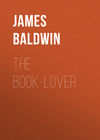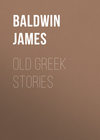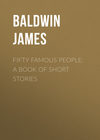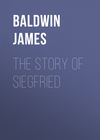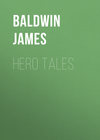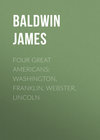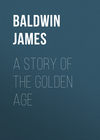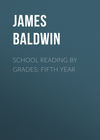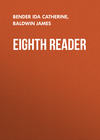Читать книгу: «The Book-lover», страница 2
Says Frederic Harrison: “Every book that we take up without a purpose is an opportunity lost of taking up a book with a purpose; every bit of stray information which we cram into our heads without any sense of its importance is for the most part a bit of the most useful information driven out of our heads and choked off from our minds… We know that books differ in value as much as diamonds differ from the sand on the sea-shore, as much as our living friend differs from a dead rat. We know that much in the myriad-peopled world of books – very much in all kinds – is trivial, enervating, inane, even noxious. And thus, where we have infinite opportunities of wasting our effort to no end, of fatiguing our minds without enriching them, of clogging the spirit without satisfying it, there, I cannot but think, the very infinity of opportunities is robbing us of the actual power of using them… To know anything that turns up is, in the infinity of knowledge, to know nothing. To read the first book we come across, in the wilderness of books, is to learn nothing. To turn over the pages of ten thousand volumes is to be practically indifferent to all that is good.”6
“It is of paramount importance,” says Schopenhauer, “to acquire the art not to read; in other words, of not reading such books as occupy the public mind, or even those which make a noise in the world, and reach several editions in their first and last year of existence. We should recollect that he who writes for fools finds an enormous audience, and we should devote the ever scant leisure of our circumscribed existence to the master-spirits of all ages and nations, those who tower over humanity, and whom the voice of Fame proclaims: only such writers cultivate and instruct us.”7
And John Ruskin offers the following pertinent advice to beginners: “It is of the greatest importance to you, not only for art’s sake, but for all kinds of sake, in these days of book deluge, to keep out of the salt swamps of literature, and live on a little rocky island of your own, with a spring and a lake in it, pure and good. I cannot, of course, suggest the choice of your library to you, for every several mind needs different books; but there are some books which we all need, and assuredly, if you read Homer, Plato, Æschylus, Herodotus, Dante, Shakspeare, and Spenser as much as you ought, you will not require wide enlargement of your shelves to right and left of them for purposes of perpetual study. Among modern books, avoid generally magazine and review literature. Sometimes it may contain a useful abridgment or a wholesome piece of criticism; but the chances are ten to one it will either waste your time or mislead you. If you want to understand any subject whatever, read the best book upon it you can hear of; not a review of the book… A common book will often give you much amusement, but it is only a noble book which will give you dear friends.”
If any of us could recall the time which we have spent in desultory and profitless reading, and devote it now faithfully to the prosecution of that special line of study which ought, long ago, to have been chosen, how largely we might add to our fund of useful knowledge, and how grandly we might increase our intellectual stature! “And again,” remarks James Herbert Morse, “if I could recover the hours idly given to the newspaper, not for my own gratification, but solely for my neighbor at the breakfast-table, I could compass a solid course of English and American history, get at the antecedents of political parties in the two countries, and give the reasons for the existence of Gladstone and Parnell, of Blaine and Edmunds, in modern politics – and there is undoubtedly a reason for them all. Two columns a day in the newspapers – which I could easily have spared, for they were given mainly to murder-trials and the search for corpses, or to the romance of the reporter concerning the same – have during the last ten years absorbed just about the time I might have spent in reading a very respectable course in history, – one embracing, say, Curtius and Grote for Greece, Mommsen, Merivale, and Gibbon for Rome, Macaulay and Green for my roots in Saxondom, Bancroft, Hildreth, and Palfrey for the ancestral tree in America, together with a very notable excursion into Spain and Holland with Motley and Prescott, – a course which I consider very desirable, and one which should set up a man of middle age very fairly in historical knowledge. I am sure I could have saved this amount out of any ten years of my newspaper reading alone, without cutting off any portion of that really valuable contribution for which the daily paper is to be honored, and which would be needed to make me an intelligent man in the history of my own times.”8
It is not necessary that, in selecting a library or in choosing what you will read, you should have many books at your disposal. A few books, well chosen and carefully read, will be of infinitely more value to you than any miscellaneous collection, however large. It is possible for “the man of one book” to be better equipped in knowledge and literary attainments than he whose shelves are loaded with all the fashionable literature of the day. If your means will not permit you the luxury of a library, buy one book, or a few books, chosen with special reference to the line of reading which you have determined upon. Let no honey-mouthed book-agent persuade you to buy of his wares, unless they bear exactly upon your specialty. You cannot afford to waste money on mere catchpenny or machine publications, whose only recommendation is that they are harmless and that they sell well. That man is to be envied who can say, “I have a library of fifty or of a hundred volumes, all relating to my chosen line of thought, and not a single inferior or worthless volume among them.”
I have before me a list of books, – “books fashioned by the intellect of godlike men,” – books which every person who aspires to the rank of teacher or scholar should regard as his inheritance from the master-minds of the ages. If you know these books – or some of them – you know much of that which is best in the great world of letters. You cannot afford to live in ignorance of them.
Plato’s Dialogues (Jowett’s translation).
The Orations of Demosthenes on the Crown.
Bacon’s Essays.
Burke’s Orations and Political Essays.
Macaulay’s Essays.
Carlyle’s Essays.
Webster’s Select Speeches.
Emerson’s Essays.
The Essays of Elia, by Charles Lamb.
Ivanhoe, by Sir Walter Scott.
David Copperfield, by Charles Dickens.
Vanity Fair, by William Makepeace Thackeray.
Hypatia, by Charles Kingsley.
The Mill on the Floss, by George Eliot.
The Marble Faun, by Nathaniel Hawthorne.
The Sketch Book, by Washington Irving.
Les Miserables, by Victor Hugo.
Wilhelm Meister, by Goethe (Carlyle’s trans.).
Don Quixote, by Cervantes.
Homer’s Iliad (Derby’s or Chapman’s translation).
Homer’s Odyssey (Bryant’s translation).
Dante’s Divina Commedia (Longfellow’s trans.).
Milton’s Paradise Lost.
Shakspeare’s Works.
Mrs. Browning’s Poems.
Longfellow’s Poetical Works.
Goethe’s Faust (Bayard Taylor’s translation).
I have named but twenty-five authors; but each of these, in his own line of thought and endeavor, stands first in the long roll of immortals. When you have the opportunity to make the acquaintance of such as these, will you waste your time with writers whom you would be ashamed to number among your personal friends? “Will you go and gossip with your housemaid or your stable boy, when you may talk with kings and queens, while this eternal court is open to you, with its society wide as the world, multitudinous as its days, the chosen, the mighty, of every place and time? Into that you may enter always; in that you may take fellowship and rank according to your wish; from that, once entered into it, you can never be outcast but by your own fault; by your aristocracy of companionship there, your inherent aristocracy will be assuredly tested, and the motives with which you strive to take high place in the society of the living, measured, as to all the truth and sincerity that are in them, by the place you desire to take in this company of the dead.”9
CHAPTER II
How to Read
And as for me, though I con but lite,
On bookes for to rede I me delite,
And to hem yeve I faith and credence,
And in my herte have hem in reverence
So hertely, that there is game none,
That from my bookes maketh me to gone,
But it be seldome on the holy daie,
Save certainly, whan that the month of May
Is comen, and that I heare the foules sing,
And that the floures ginnan for to spring,
Farwell my booke, and my devotion.
Geoffrey Chaucer.
AVING chosen the books which are to be our friends and counsellors, the next question to be considered is, How shall we use them? Shall we read them through as hastily as possible, believing that the more we read, the more learned we are? Or shall we not derive more profit by reading slowly, and by making the subject-matter of each book thoroughly our own? I do not believe that any general rule can be given with reference to this matter. Some readers will take in a page at a glance, and will more thoroughly master a book in a week than others could possibly master it in six months. It required Frederick W. Robertson half a year to read a small manual of chemistry, and thoroughly to digest its contents. Miss Martineau and Auguste Comte were remarkably slow readers; but then, that which they read “lay fructifying, and came out a living tree with leaves and fruit.” Yet it does not follow that the same rule should apply to readers of every grade of genius.
It is generally better to read by subjects, to learn what different writers have thought and said concerning that matter of which you are making a special study. Not many books are to be read hastily through. “A person who was a very great reader and hard thinker,” says Bishop Thirlwall, “once told me that he never took up a book except with the view of making himself master of some subject which he was studying, and that while he was so engaged he made all his reading converge to that point. In this way he might read parts of many books, but not a single one from ‘end to end.’ This I take to be an excellent method of study, but one which implies the command of many books as well as of much leisure.”
Seneca, the old Roman teacher, says: “Definite reading is profitable; miscellaneous reading is pleasant… The reading of many authors and of all kinds of works has in it something vague and unstable.”
Says Quintilian: “Every good writer is to be read, and diligently; and when the volume is finished, it is to be gone through again from the beginning.”
Martin Luther, in his “Table Talk,” says: “All who would study with advantage in any art whatsoever ought to betake themselves to the reading of some sure and certain books oftentimes over; for to read many books produceth confusion rather than learning, like as those who dwell everywhere are not anywhere at home.”
“Reading,” says Locke the philosopher, “furnishes the mind only with materials of knowledge; it is thinking that makes what are read over. We are of the ruminating kind, and it is not enough to cram ourselves with a great load of collections; unless we chew them over again, they will not give us strength and nourishment.”
“Much reading,” says Dr. Robert South, “is like much eating, – wholly useless without digestion.”
“Desultory reading,” writes Julius C. Hare, “is indeed very mischievous, by fostering habits of loose, discontinuous thought, by turning the memory into a common sewer for rubbish of all thoughts to flow through, and by relaxing the power of attention, which of all our faculties most needs care, and is most improved by it. But a well-regulated course of study will no more weaken the mind than hard exercise will weaken the body; nor will a strong understanding be weighed down by its knowledge, any more than oak is by its leaves or than Samson was by his locks. He whose sinews are drained by his hair must already be a weakling.”10
Says Thomas Carlyle: “Learn to be good readers, – which is perhaps a more difficult thing than you imagine. Learn to be discriminative in your reading; to read faithfully, and with your best attention, all kinds of things which you have a real interest in, – a real, not an imaginary, – and which you find to be really fit for what you are engaged in. The most unhappy of all men is the man who cannot tell what he is going to do, who has got no work cut out for him in the world, and does not go into it. For work is the grand cure of all the maladies and miseries that ever beset mankind, – honest work, which you intend getting done.”
Says Ralph Waldo Emerson: “The best rule of reading will be a method from nature, and not a mechanical one of hours and pages. It holds each student to a pursuit of his native aim, instead of a desultory miscellany. Let him read what is proper to him, and not waste his memory on a crowd of mediocrities. … The three practical rules which I have to offer are: 1. Never read any book that is not a year old. 2. Never read any but famed books. 3. Never read any but what you like; or, in Shakspeare’s phrase, —
“Let us read good works often over,” says another writer.12 “Some skip from volume to volume, touching on all points, resting on none. We hold, on the contrary, that if a book be worth reading once, it is worth reading twice, and that if it stands a second reading, it may stand a third. This, indeed, is one great test of the excellence of books. Many books require to be read more than once, in order to be seen in their proper colors and latent glories, and dim-discovered truths will by-and-by disclose themselves… Again, let us read thoughtfully; this is a great secret in the right use of books. Not lazily, to mumble, like the dogs in the siege of Corinth, as dead bones, the words of the author, – not slavishly to assent to his every word, and cry Amen to his every conclusion, – not to read him as an officer his general’s orders, but to read him with suspicion, with inquiry, with a free exercise of your own faculties, with the admiration of intelligence, and not with the wonder of ignorance, – that is the proper and profitable way of reading the great authors of your native tongue.”
Says Sir Arthur Helps: “There is another view of reading which, though it is obvious enough, is seldom taken, I imagine, or at least acted upon; and that is, that in the course of our reading we should lay up in our minds a store of goodly thoughts in well-wrought words, which should be a living treasure of knowledge always with us, and from which, at various times and amidst all the shifting of circumstances, we might be sure of drawing some comfort, guidance, and sympathy… In any work that is worth carefully reading, there is generally something that is worth remembering accurately. A man whose mind is enriched with the best sayings of his own country is a more independent man, walks the streets in a town or the lanes in the country with far more delight than he otherwise would have, and is taught by wise observers of man and nature to examine for himself. Sancho Panza, with his proverbs, is a great deal better than he would have been without them; and I contend that a man has something in himself to meet troubles and difficulties, small or great, who has stored in his mind some of the best things which have been said about troubles and difficulties.”13
And John Ruskin: “No book is worth anything which is not worth much; nor is it serviceable until it has been read, and reread, and loved, and loved again; and marked, so that you can refer to the passages you want in it, as a soldier can seize the weapons he needs in an armory, or a housewife bring the spice she needs from her store.”
“I am not at all afraid,” says Matthew Browne, “of urging overmuch the propriety of frequent, very frequent, reading of the same book. The book remains the same, but the reader changes; and the value of reading lies in the collision of minds. It may be taken for granted that no conceivable amount of reading could ever put me into the position with respect to his book – I mean as to intelligence only – in which the author strove to place me. I may read him a hundred times, and not catch the precise right point of view; and may read him a hundred and one times, and approach it the hundred and first. The driest and hardest book that ever was, contains an interest over and above what can be picked out of it, and laid, so to speak, on the table. It is interesting as my friend is interesting; it is a problem which invites me to closer knowledge, and that usually means better liking. He must be a poor friend that we only care to see once or twice, and then forget.”14
“The great secret of reading consists in this,” says Charles F. Richardson, “that it does not matter so much what we read, or how we read it, as what we think and how we think it. Reading is only the fuel; and, the mind once on fire, any and all material will feed the flame, provided only it have any combustible matter in it. And we cannot tell from what quarter the next material will come. The thought we need, the facts we are in search of, may make their appearance in the corner of the newspaper, or in some forgotten volume long ago consigned to dust and oblivion… The mind that is not awake and alive will find a library a barren wilderness. Now, gather up the scraps and fragments of thought on whatever subject you may be studying, – for of course by a note-book I do not mean a mere receptacle for odds and ends, a literary dust-bin, – but acquire the habit of gathering everything whenever and wherever you find it, that belongs in your line or lines of study, and you will be surprised to see how such fragments will arrange themselves into an orderly whole by the very organizing power of your own thinking, acting in a definite direction. This is a true process of self-education; but you see it is no mechanical process of mere aggregation. It requires activity of thought; but without that, what is any reading but mere passive amusement? And it requires method. I have myself a sort of literary book-keeping. I post my literary accounts, bringing together in proper groups the fruits of much casual reading.”15
Edward Gibbon the historian tells us that a taste for books was the pleasure and glory of his life. “Let us read with method,” he says, “and propose to ourselves an end to what our studies may point. The use of reading is to aid us in thinking.”
Among practical suggestions to those who would read for profit, I have found nothing more pertinent than the following from the posthumous papers of Bryan Waller Procter: “Always read the preface to a book. It places you on vantage ground, and enables you to survey more completely the book itself. You frequently also discover the character of the author from the preface. You see his aims, perhaps his prejudices. You see the point of view from which he takes his pictures, the rocks and impediments which he himself beholds, and you steer accordingly… Understand every word you read; if possible, every allusion of the author, – if practicable, while you are reading; if not, make search and inquiry as soon as may be afterward. Have a dictionary near you when you read; and when you read a book of travels, always read with a map of the country at hand. Without a map the information is vague and transitory… After having read as much as your mind will easily retain, sum up what you have read, – endeavor to place in view the portion or subject that has formed your morning’s study; and then reckon up (as you would reckon up a sum) the facts or items of knowledge that you have gained. It generally happens that the amount of three or four hours’ reading may be reduced to and concentrated in half a dozen propositions. These are your gains, – these are the facts or opinions that you have acquired. You may investigate the truth of them hereafter. Although I think that one’s general reading should extend over many subjects, yet for serious study we should confine ourselves to some branch of literature or science. Otherwise the mind becomes confused and enfeebled, and the thoughts, dissipated on many things, will settle profitably on none. A man whose duration of life is limited, and whose powers are limited also, should not aim at all things, but should content himself with a few. By such means he may master one, and become tolerably familiar perhaps with two or three arts or sciences. He may indeed even make valuable contributions to them. Without this economy of labor, he cannot produce any complete work, nor can he exhaust any subject.”16
Every scholar is familiar with Lord Bacon’s classification of books, – some “to be tasted, others to be swallowed, and some few to be chewed and digested: that is, some books are to be read only in parts; others to be read, but not curiously; and some few to be read wholly, and with diligence and attention.” Coleridge’s classification of the various kinds of readers is perhaps not quite so well known. He said that some readers are like jelly-bags, – they let pass away all that is pure and good, and retain only what is impure and refuse. Another class he typified by a sponge; these are they whose minds suck all up, and give it back again, only a little dirtier. Others, again, he likened to an hour-glass, and their reading to the sand which runs in and out, and leaves no trace behind. And still others he compared to the slave in the Golconda mines, who retains the gold and the gem, and casts aside the dust and the dross. Charles C. Colton, the author of “Lacon,” says there are three kinds of readers: first, those who read to think, – and they are rare; second, those who read to write, – and they are common; third, those who read to talk, – and they form the great majority. And Goethe, the greatest name in German literature, makes still a different classification: some readers, he tells us, enjoy without judgment; others judge without enjoyment; and some there are who judge while they enjoy, and enjoy while they judge.
In these days, when, so far as reading-matter is concerned, we are overburdened with an embarrassment of riches, we cannot afford to read, even in the books which we have chosen as ours, those things which have no relationship to our studies, which do not concern us, and which are sure to be forgotten as soon as read. The art of reading, says Philip Gilbert Hamerton in his admirable essay on “The Intellectual Life,” “is to skip judiciously. The art is to skip all that does not concern us, whilst missing nothing that we really need. No external guidance can teach this; for nobody but ourselves can guess what the needs of our intellect may be. But let us select with decisive firmness, independently of other people’s advice, independently of the authority of custom.” And Charles F. Richardson, referring to the same subject, remarks: “The art of skipping is, in a word, the art of noting and shunning that which is bad, or frivolous, or misleading, or unsuitable for one’s individual needs. If you are convinced that the book or the chapter is bad, you cannot drop it too quickly. If it is simply idle and foolish, put it away on that account, – unless you are properly seeking amusement from idleness and frivolity. If it is something deceitful and disingenuous, your task is not so easy; but your conscience will give you warning, and the sharp examination which should follow will tell you that you are in poor literary company.”
Покупайте книги и получайте бонусы в Литрес, Читай-городе и Буквоеде.
Участвовать в бонусной программе
